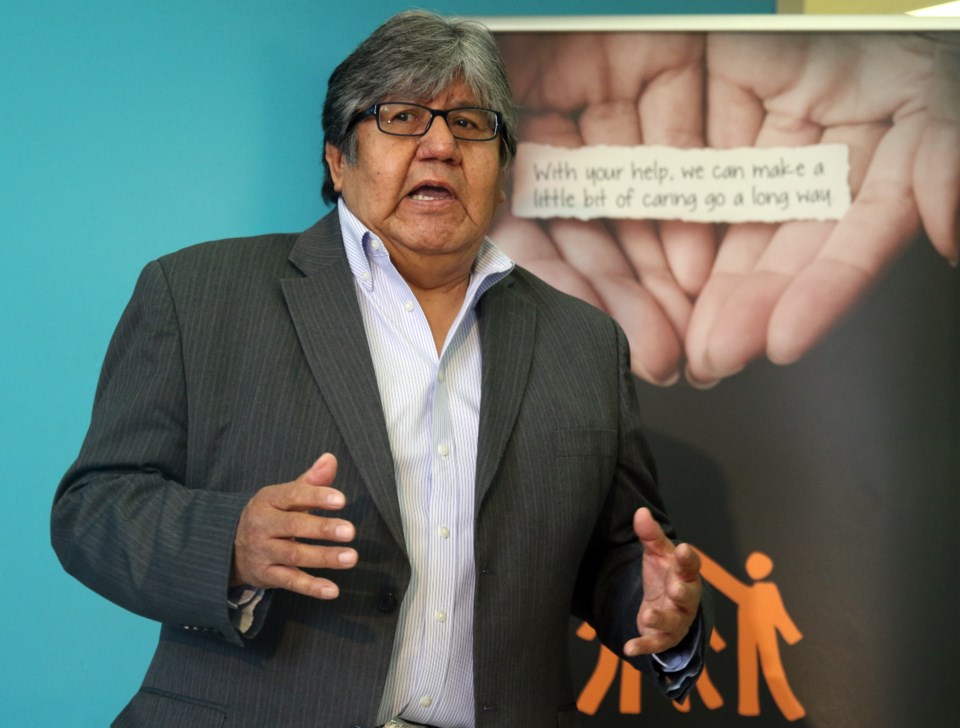THUNDER BAY -- Matawa First Nations have contributed $10,000 to restoring Shelter House's Street Outreach Services (SOS) program and its leaders are challenging other organizations to do the same.
When combined with Tuesday's anonymous $6,300 donation through the Thunder Bay Community Foundation, the Matawa financial commitment brings Shelter House to 10 per cent of the $200,000 needed to re-launch the program, which was suspended for the summer on April 1.
Matawa CEO David Paul Achneepineskum said the tribal council representing nine First Nations across remote territory northeast of Thunder Bay is a long-term donor to Shelter House.
"It's our duty and responsibility," he said. "The way we look at it in our communities, the philosophy of helping one another has always been there. This is no different in terms of helping Shelter House."
The SOS program serves as a transportation service for the city's homeless population as well as an outreach vehicle for warm clothing and harm reduction tools to support those living outdoors.
Two members of Matawa First Nations communities have died on Thunder Bay's streets in the last month. Achneepineskum particularly urged Indigenous businesses and organizations to stand up for SOS and support the homeless from all over Northwestern Ontario.
"You don't have the capacity, money-wise is the biggest problem," he said of Matawa First Nations community members making their transitions to the city.
"Also, they don't have the skills to get a job or education opportunities. What happens then is they have nowhere else to go. They can't afford a place to live in. They can't afford food for themselves so they end up on the streets and with the help of Thunder Bay Shelter House, they're at least able to have food and shelter when they need it the most."
Shelter House executive director Gary Mack is scheduled to meet with North West Local Health Integration Network executives this month to discuss ongoing funding for its managed alcohol and SOS programs. The LHIN's leadership said last month it's not considering funding SOS.
Although members of the Thunder Bay Police Service and Superior North EMS have stated their services will feel the program's loss, neither of those services are able to commit funding to its continuation.
Mack said SOS "was first started so people wouldn't freeze to death in the wintertime" but the mutual respect and trust relationships between Shelter House staff and clients has made it equally important under warmer temperatures.
"Our van is out looking for places where people are sleeping unsheltered and works with those people to encourage them to come into shelter and to provide amenities to them so if they decide not to come to shelter, they're still more comfortable," he said.
"But in the summer, the need does not really decrease because there are still people in the community -- in crisis -- that need help. What happens is, instead of calling SOS, people now have to call 9-1-1."
Shelter House resident Katrina Mentowegan expressed the program is deeply needed.
"It's very important," she said. "A lot of people are going to be stuck on the street somewhere or end up in jail or in the hospital and it's not going to help much for anybody."
